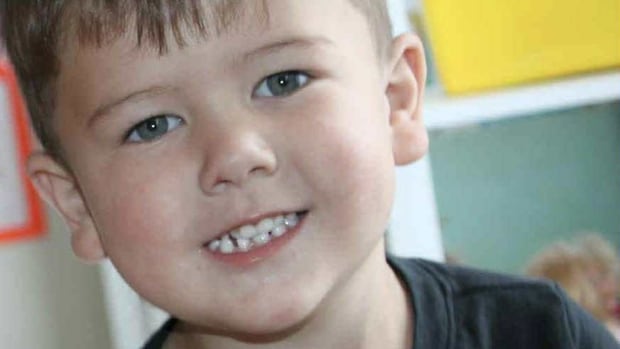Wolastoqey family fights for care as Jordan’s Principle backlog leaves children waiting

A Wolastoqey Family in New Brunswick Struggles with Medical Care for Three-Year-Old Son
A Wolastoqey family in New Brunswick is facing uncertainty when it comes to medical care for their three-year-old son due to a backlog of Jordan’s Principle funding applications. Stephanie and Ashton Francis, from Tobique First Nation, are the parents of Beckett, who has glycogen storage disorder type 1A. Beckett’s condition requires overnight feeding through a gastrostomy tube every two to three hours to prevent dangerous drops in blood sugar.
Despite support from doctors at the IWK Health Centre in Halifax for a night nurse, the Francis family’s applications to Indigenous Services Canada’s Jordan’s Principle program have been repeatedly rejected or delayed. This program is designed to ensure that First Nations youth can access essential health and social services without delays or disruptions, with the issue of payment jurisdiction to be resolved later.
Last year, the program approved a night nurse for Beckett five nights a week, but the family had to reapply every few months, facing new paperwork and further delays each time. The uncertainty surrounding funding for essential care puts a strain on the family and the night nurse, Carllia Panton, who has been providing critical support to Beckett.
The backlog of Jordan’s Principle applications remains a pressing issue, with nearly 140,000 backlogged requests as of June 4, 2025. The Canadian Human Rights Tribunal has ordered the federal government to address this backlog urgently. Indigenous Services Canada acknowledges the delays and is working to reduce the backlog while improving the program’s delivery in partnership with First Nation leadership.
In late July, the Francis family, supported by Wolastoqey chiefs, met with representatives from the New Brunswick government, Indigenous Services Minister Mandy Gull-Masty, and the Assembly of First Nations to share their story and advocate for shorter wait times. Chief Allan Polchies of Sitansisk First Nation highlighted the financial strain that communities face while waiting for Jordan’s Principle funding to be approved.
Stephanie Francis hopes that families with similar medical needs will not have to endure the same challenges in accessing funding through Jordan’s Principle in the future. She emphasizes the importance of prioritizing children’s health needs and ensuring that they receive the necessary services without unnecessary delays.
The Francis family’s story sheds light on the critical need for timely and efficient allocation of resources through programs like Jordan’s Principle to support Indigenous children’s health and well-being. the perspective of a futuristic society where technology has advanced to the point where humans can transfer their consciousness into artificial bodies.
In the year 2150, the world has entered a new era of technological advancement that has forever changed the way humans interact with the world around them. With the development of mind uploading technology, individuals now have the ability to transfer their consciousness into artificial bodies, effectively achieving immortality.
This groundbreaking technology has revolutionized the way society functions, as individuals can now live for hundreds, or even thousands, of years in a body that never ages or deteriorates. The concept of mortality has become a thing of the past, as individuals can simply transfer their consciousness into a new body whenever their current one reaches the end of its lifespan.
The implications of this technology are vast and far-reaching. With the ability to transfer their consciousness into different bodies, individuals can now experience life from a multitude of perspectives, gaining new insights and understanding that were previously impossible. This has led to a newfound sense of empathy and understanding among individuals, as they are able to truly walk in someone else’s shoes.
However, this technology has also raised ethical concerns. With the ability to live for thousands of years, some individuals have amassed incredible wealth and power, leading to a new form of inequality in society. There are also concerns about the implications of transferring consciousness into artificial bodies – what happens to the original body? Is it simply discarded, or does it continue to exist in some form?
Despite these ethical concerns, the benefits of mind uploading technology cannot be denied. The ability to live for hundreds or thousands of years has led to incredible advancements in science, technology, and culture. Society has become more diverse and inclusive, as individuals from all walks of life have the opportunity to experience new perspectives and ideas.
As we look towards the future, it is clear that mind uploading technology will continue to shape society in ways we can only begin to imagine. With the ability to transfer our consciousness into artificial bodies, the possibilities are truly endless. Who knows what incredible discoveries and advancements await us in the years to come?




